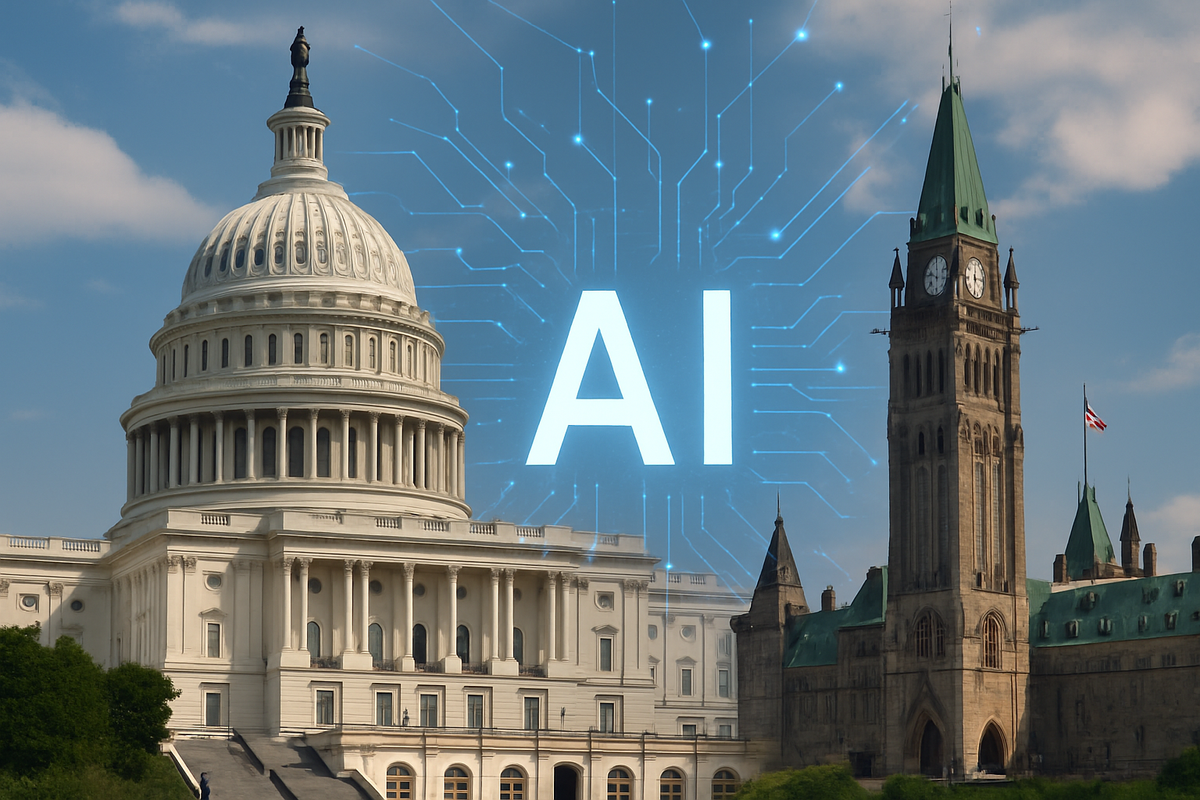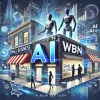
✍️ By Debbie Balfour | WBN News | October 9, 2025 | Click HERE for your FREE Subscription to WBN News and/or to be a Contributor.
A chilling new Senate report has issued a stark warning: artificial intelligence could threaten up to 100 million U.S. jobs within the next decade. The findings have sent shockwaves through Washington, Wall Street, and beyond, raising red flags north of the border in Canada, where similar economic structures make it vulnerable to the same AI-driven disruption.
The bipartisan report, released this week by the Senate Committee on Labor and Technology, paints a sobering picture of an economy on the brink of massive transformation. It suggests that both blue-collar and white-collar roles, from truck drivers and warehouse workers to accountants, paralegals, and even software developers, could face displacement as AI continues to infiltrate every sector.
“AI is not just changing the workplace—it’s redefining it,” said Senator Maria Torres, one of the committee’s authors. “This isn’t a distant threat. The shift is already underway.”
The report urges urgent policy action, including federal retraining programs, tax incentives for companies that retain human workers, and even a proposed “robot tax” on firms that replace employees with automation. Advocates say these measures could slow job losses and help prepare the workforce for a new digital era.
Business leaders, however, argue that AI is essential for global competitiveness. They believe automation will create new opportunities, just as the internet did two decades ago—but economists caution that the transition may be far more disruptive than past technological revolutions.
The most vulnerable sectors include manufacturing, retail, logistics, customer service, and data processing—industries that collectively employ tens of millions. Even professional services, once considered secure, are being reshaped as AI tools take over analytical and administrative tasks once handled by humans.
Implications for Canada
Canada may not have been the focus of the U.S. Senate report, but experts say the warning applies north of the border as well. With nearly 80% of Canada’s exports tied to U.S. trade, any mass workforce disruption in the States could send ripples through Canadian industries, particularly manufacturing, transportation, and tech services.
“Canada’s economy mirrors the U.S. in many ways,” explains economist Dr. Jordan McKay of the University of Toronto. “If American firms automate on a large scale, Canadian suppliers and partners will follow suit, or risk losing competitiveness.”
This could place significant pressure on the Canadian labor market, especially in provinces like Ontario, Alberta, and British Columbia, where logistics, finance, and customer service roles are key employment drivers.
Ottawa may need to act preemptively, investing in nationwide retraining and digital upskilling programs before automation outpaces adaptation. Some policymakers have already proposed adopting an AI Resilience Strategy to protect workers and ensure ethical technology deployment.
Whether in the U.S. or Canada, the message is the same: the AI revolution is accelerating, and the time to prepare is now. The workforce of tomorrow will demand not only adaptability but a willingness to evolve as fast as the technology transforming it.
Debbie Balfour | Real Estate Investing Success Coach + Podcast Host
📍 Website: www.DebbieBalfour.com
📧 Email: Debbie@DebbieBalfour.com
🔗 LinkedIn: Debbie Balfour
▶️ YouTube Channel: youtube.com/@DebbieBalfour
Join the FREE Facebook Group: Let's Talk Real Estate Investing
TAGS: #AI #Automation #Job Loss #Senate Report #Future Of Work #Canada #Economy #WBN AI #WBN News Langley #WBN News Abbotsford #WBN News Okanagan #Debbie Balfour





